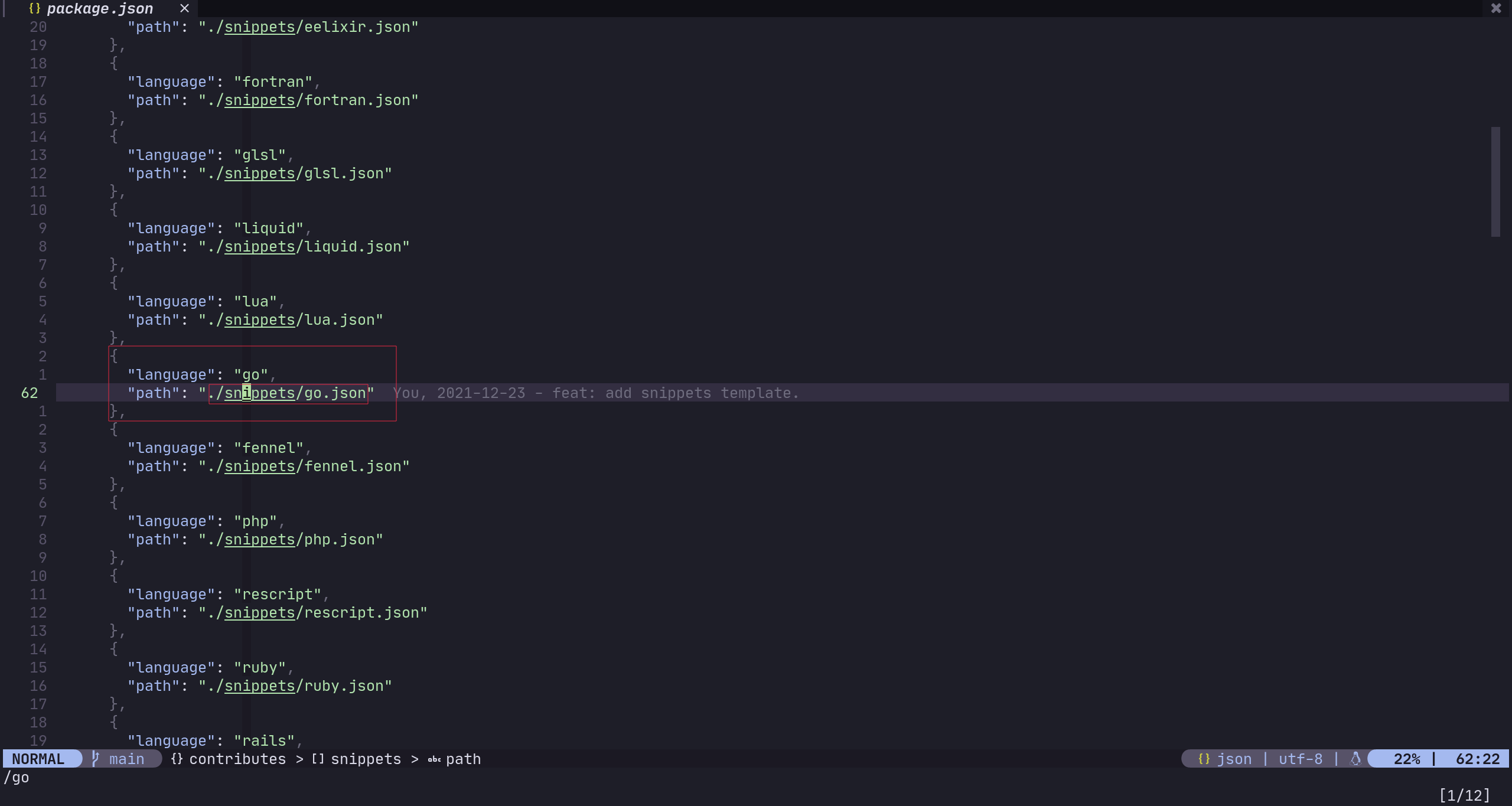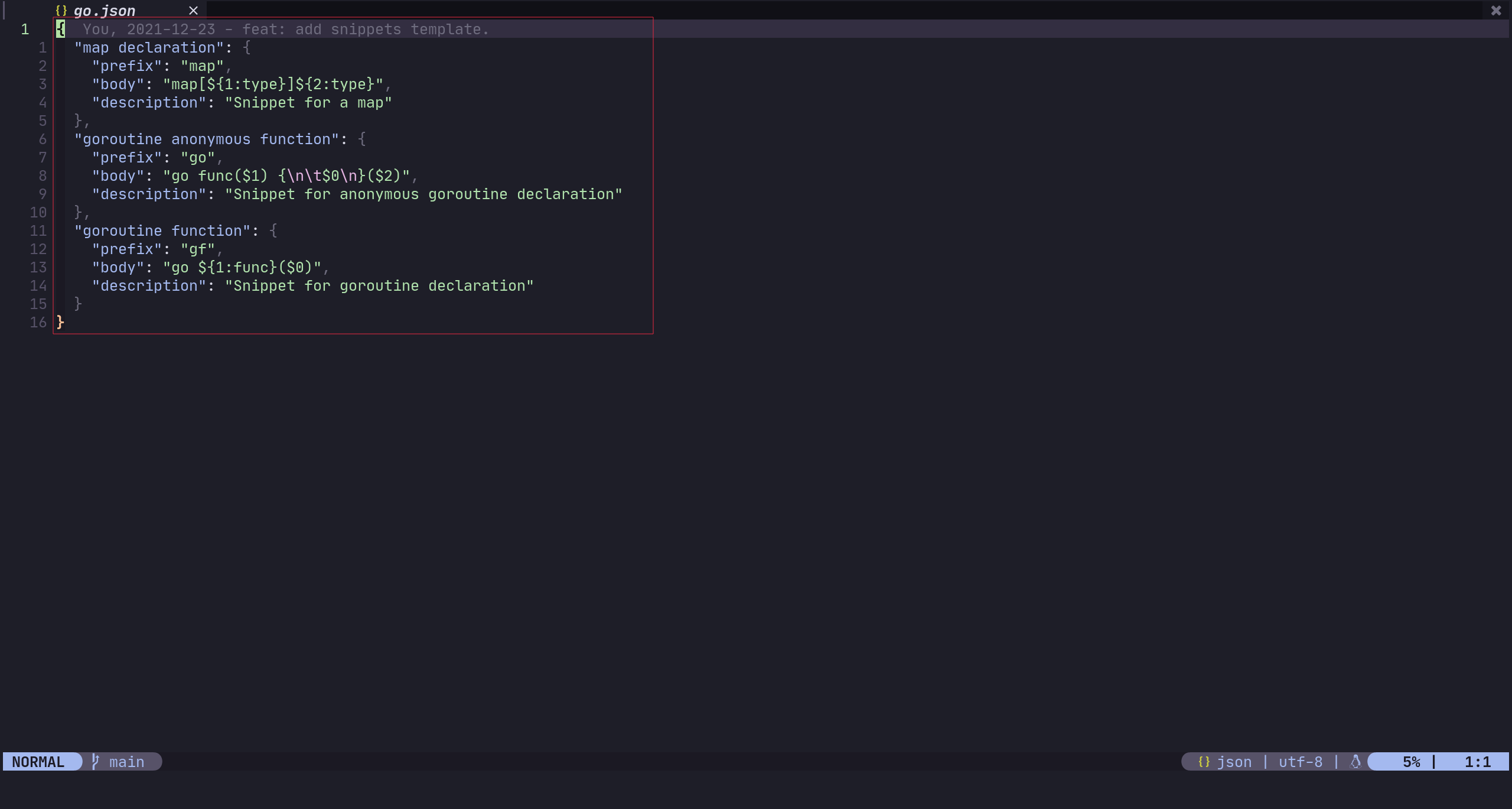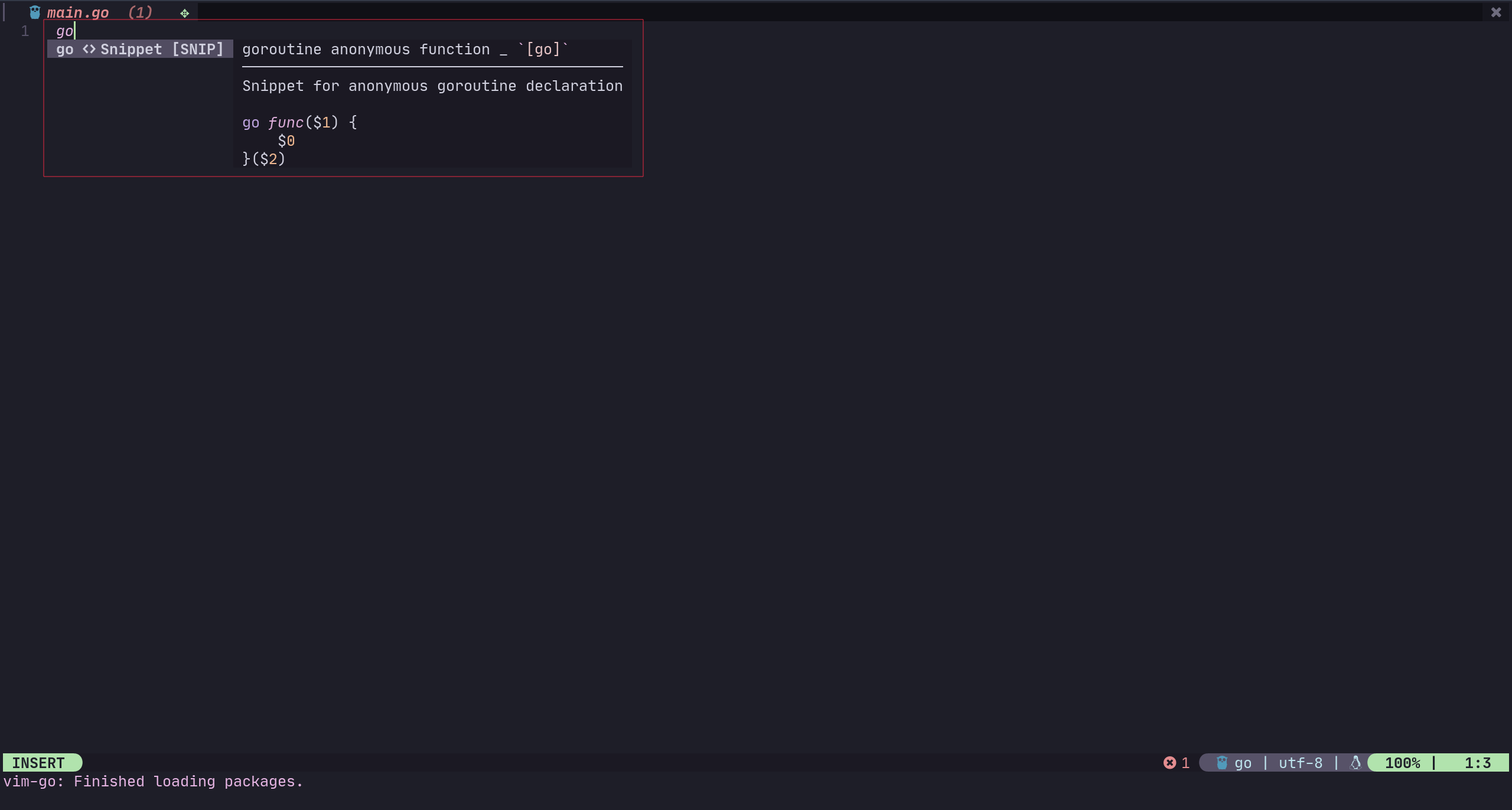-
Notifications
You must be signed in to change notification settings - Fork 462
Issues
This page is not frequently updated, so please also check issues opened and closed to find answer.
https://github.com/ayamir/nvimdots/pull/1085#issuecomment-1833612011
lazy.nvim will reset rtp for better performance. In this case, nvim-qt's rtp got reset, so it's not shown in the command candidate.
Add vim.api.nvim_command("set runtimepath+=" .. global.home .. "/path/to/nvim-qt/runtime") after require("core.pack") in core/init.lua to add the nvim-qt rtp back.
Please refer to the FAQ and add win32yank.exe to your path.
We don't use clip.exe to copy because it can't handle UTF-8 string correctly, details: https://github.com/ayamir/nvimdots/issues/762
Please check this file to make sure your directory can be detected as a working directory.
For example (gopls):
Your root directory need a go.mod and your .go file need to be created
first. Then LSP will autostart when you edit .go file next time.
Make sure your github account is signed up for copilot.
Then use Copilot auth command to setup.
I just copy friendly-snippets's package.json to snips directory.
So you need add your snippets follow these steps:
- Check the language's snippet file place defined in
package.json.

- So create
snippets/go.jsonand fill content like this:
touch snippets/go.json

- Finally, check the new snippets!

You need to use the latest LTS version (such as v16.13.2) to make sure LSP installed from npm works normally.
Relevant debug info is located in ~/.cache/nvim/lsp.log.
You can use tail ~/.cache/nvim/lsp.log to check latest error info.
Make sure first use g++ or clang++ with -g flag to get executable a.out file.
set dashboard_image in lua/user/settings.lua, i.e.:
settings["dashboard_image"] = function()
return {
-- your ascii image
}
endFor *nix:
rm -rf ~/.config/nvim
rm -rf ~/.local/share/nvimFor Windows:
Delete these two folders: ~\AppData\Local\nvim and ~\AppData\Local\nvim-data.
Make sure to have the following tool available in $PATH
- clang++
- clang
- gcc
- g++
For MacOS users, this can often be achieved by installing LLVM (it comes with the whole suite):
brew install llvmIf you are using nix-darwin, then add pkgs.llvm to environment.systemPackages:
Example darwin-configuration.nix
{ config, pkgs, lib, ... }:
let
inherit (pkgs) callPackage fetchFromGitHub;
inherit (builtins) fetchTarball;
homeDir = builtins.getEnv "HOME";
in
{
# auto gc
nix = {
gc = {
automatic = true;
options = "--max-freed $((25 * 1024**3 - 1024 * $(df -P -k /nix/store | tail -n 1 | awk '{ print $4 }')))";
};
package = pkgs.nixUnstable;
# enable flake and experimental command
extraOptions = ''
auto-optimise-store = true
experimental-features = nix-command flakes
keep-outputs = true
keep-derivations = true
trusted-users = root ${username}
'' + lib.optionalString (pkgs.system == "aarch64-darwin") ''
extra-platforms = x86_64-darwin aarch64-darwin
'';
};
environment = {
systemPackages = with pkgs; [
llvmPackages
];
# add shell installed by nix to /etc/shells
shells = with pkgs; [
zsh
];
# Setup environment variables to pass to zshrc
variables = {
PATH = "${pkgs.llvmPackages.out}/bin:$PATH";
};
};
services = {
# Auto upgrade nix package and the daemon service.
nix-daemon.enable = true;
};
}